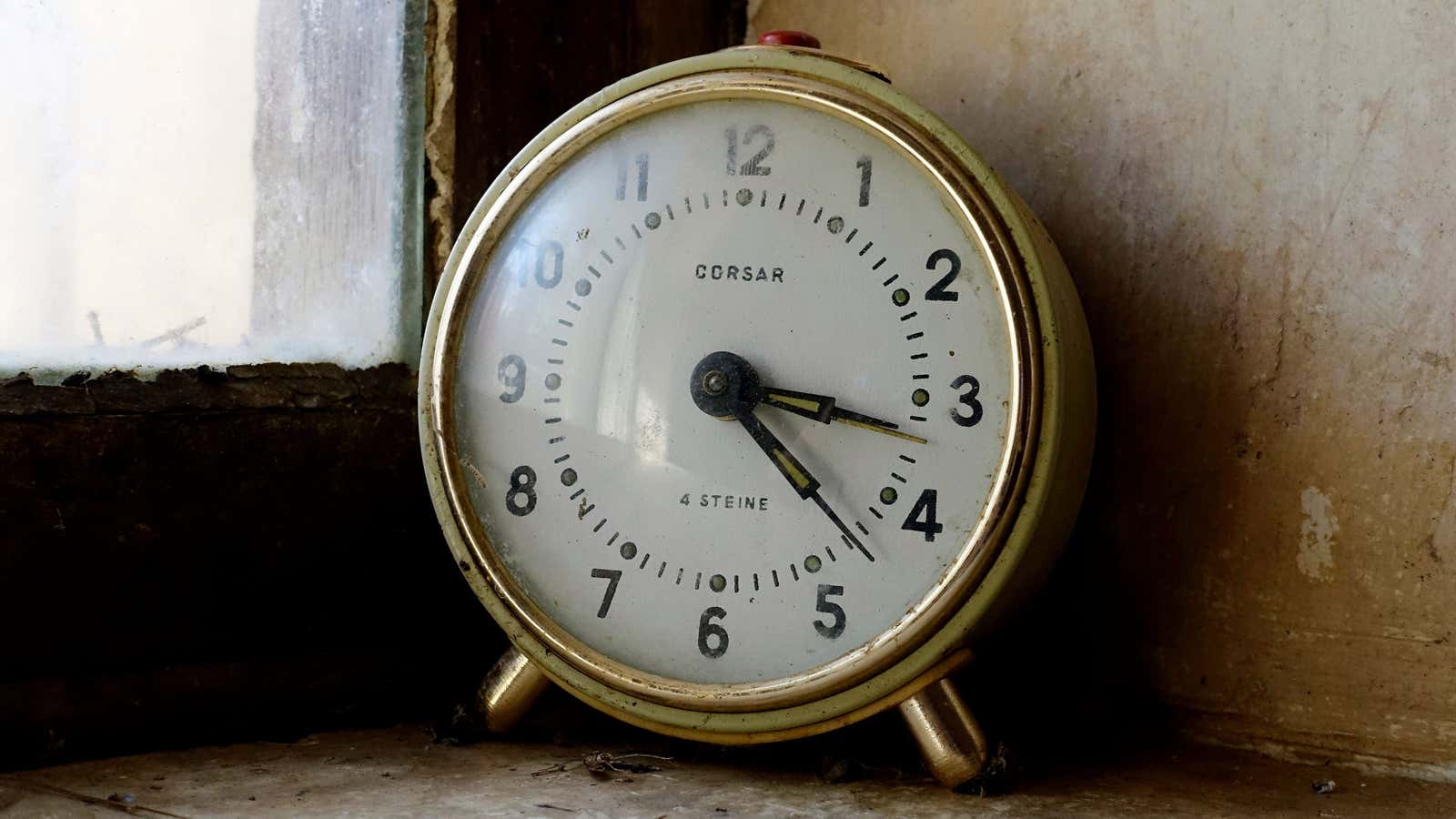In college, I turned in my thesis early. I prepared for tests weeks beforehand, and then hung out alone while everyone else crammed. I have never pulled an all-nighter in my life.
I was, and still am, an anti-procrastinator. The white-hot fear of not meeting a deadline will drive me to go great lengths. And only recently have I begun to see that this tendency can sometimes have negative consequences.
Three years ago, I worked on a large project with someone for whom procrastination seemed like a necessity. Unlike me, this person seemed to thrive under the pressure of an impending deadline. We had completely different work schedules—mine a strict 9-to-5—hers all hours of the night and weekend. I’d want to talk about updates on Mondays and Wednesdays, and she wanted to do conference calls on Sunday afternoons. Our work styles were literally night and day, and I had no choice but to go along with it. A meeting on a Saturday? Sure. Changing the outlines an hour before they were due? Ok (I was hiving). It was as if we had the opposite sources of motivation—mine was to be done early, and hers was to be done when the buzzer rang.
I tore my hair out. I worried, I paced. But I had no choice but to “get over it,” since my work relied on the person I was working with. Nothing I could say was going to make the person move faster, or do things ahead of time. So I had to get with the program. First, therapy. Lots of extra time on the couch, with both a professional and my friends. I wrote down a list of things that would calm me or make me feel good in the midst of the chaos I felt, things as small as workouts or nice meals.
Then, after a while, it didn’t feel so bad. I could anticipate when things would be hectic. It followed a pattern—not one I myself would ever implement, but one that I could at least predict. I shifted my schedule to work later at night, to do the things I liked to do on weekends on a Friday so I could keep a weekend day clear. And I survived. I became more malleable and flexible, and nothing surprised me. I stopped bracing for impact. When the project was done, I realized that it was hard fought and won. Had I only relied on my own way of doing things, it wouldn’t have been a partnership. I was so used to working alone that I hadn’t had to adapt to others’ work styles or tics. And that was a very valuable lesson.
I also realized that what I was actually doing when I turned things in early was hedging my bets. I was terrified of “getting in trouble,” whatever that meant—a bad grade, not meeting a deadline, doing a bad job—and it was stopping me from trusting myself. My work wasn’t any better because it was turned in early: I just wanted it done so that I didn’t have to worry about not getting it done. Which was a great way to kill my best ideas.
Procrastination, I learned, could make me feel more capable. The pressure of a deadline made me move faster, more strategically, and without as much second-guessing. There was no room for my anxiety. There was no room for my doubt. There was only room for work. The anxiety or paralysis I feared from waiting until the last minute never came.
I’m not the only one to have experienced the upside of procrastination. “When you procrastinate, you’re more likely to let your mind wander,” Wharton Professor Adam Grant wrote in a 2016 op-ed about why he wanted to procrastinate more. “That gives you a better chance of stumbling onto the unusual and spotting unexpected patterns.”
Research suggests that, counter to my instincts, procrastination boosts creativity, helps memory, and makes you get more done, not less. Research for this isn’t new, either. A psychologist named Bluma Zeigarnik in 1927 found that you actually remember tasks you haven’t finished better than ones you have. In other words, if you procrastinate on something it actually makes your memory and recall better. This is known as the “Zeigarnik Effect”.
That may be part of the reason why procrastination has only recently been cast as something to avoid. In his book Wait, on the subject of procrastination, professor Frank Partnoy describes the work ethic that came about in the 1700s as one that ran counter to procrastination-based thinkers of the past. During Greek and Roman times, procrastination was not a dirty word, or even a word at all. It was just the way things worked. It wasn’t until Puritanical times that the “early to bed, early to rise” get-it-all-done mindset started to creep in.
Learning to think of procrastination more like an ancient Greek or Roman allowed me to give myself a break. Or lots of breaks. I had been so obsessed with playing by the rules and coloring inside the lines that I’d forgotten to take the time that I needed to make something good.
So do that thing you need to do, maybe after you clean the kitchen. Tomorrow.
Meredith Fineman is the founder of Finepoint.
